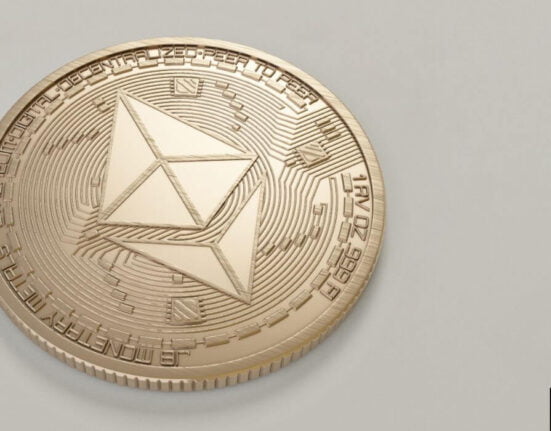Blockchain technology, initially developed for Bitcoin in 2008, has come a long way since then. The technology has grown beyond the realm of cryptocurrency, and its potential has expanded across various industries. Today, it has become a significant tool for businesses and governments worldwide. In this article, we will explore some of the industries that have been transformed by blockchain technology.
What is Blockchain Technology?
Blockchain technology is a distributed ledger that records transactions in a tamper-resistant, decentralized system. Transactions are recorded in a block that is added to a chain of other blocks, creating a chain of blocks (or blockchain) that is cryptographically secured. This makes the system virtually tamper-proof and resistant to fraud.
Blockchain in Supply Chain Management
Supply chain management is one of the industries where blockchain technology is transforming operations. By using blockchain, supply chain managers can track products from their origin to their destination, ensuring transparency, traceability, and accountability. Blockchain can help prevent fraud, counterfeiting, and theft, and ensure that all parties in the supply chain are operating ethically and responsibly.
The application of blockchain technology in supply chain management goes beyond just tracking products. It also involves tracking the environmental impact of the product’s production and transportation. This type of tracking can help companies identify areas where they can reduce their carbon footprint, making it a significant tool for sustainability efforts.
Companies like IBM, Walmart, and Maersk are some of the early adopters of blockchain-based supply chain solutions. These companies have been using blockchain to track their products, and the results have been impressive.
Blockchain in Healthcare
Blockchain technology is also transforming the healthcare industry. By using blockchain, healthcare providers can improve patient outcomes, reduce costs, and ensure patient privacy. Blockchain can also help prevent medical fraud, identity theft, and other forms of data breaches.
The application of blockchain technology in healthcare goes beyond just storing medical records. It can also be used to track the supply chain of medical products, ensuring that counterfeit drugs do not enter the market. Additionally, blockchain can help to facilitate secure sharing of medical data among healthcare providers.
Companies like Medicalchain and BurstIQ are some of the companies leading the way in blockchain-based healthcare solutions. Medicalchain allows patients to store their medical data securely on the blockchain, while BurstIQ is using blockchain to create a health data marketplace.
Related: How Mobile Apps Can Get Benefit from Blockchain Technology
Blockchain in Voting
By using blockchain, we can ensure that votes are recorded securely, transparently, and accurately. Blockchain can help prevent voter fraud, hacking, and other forms of tampering. In addition, blockchain can increase voter turnout and engagement by making the voting process more convenient and accessible.
Blockchain-based voting systems work by allowing voters to cast their votes on a blockchain-based platform. The votes are then encrypted and recorded on the blockchain, making them tamper-proof. Voters can verify that their vote was recorded correctly, and the results of the election can be easily audited.
Companies like Voatz and Follow My Vote are developing blockchain-based voting systems. Voatz has already implemented its blockchain-based voting system in several elections in the US.
Blockchain in Entertainment
Blockchain technology is also transforming the entertainment industry. By using blockchain, artists and creators can bypass traditional gatekeepers and directly connect with their audiences. Blockchain can also help ensure that creators are fairly compensated for their work and that their intellectual property rights are protected.
Blockchain-based platforms for the entertainment industry allow creators to upload their content to a decentralized platform, where it can be easily accessed by users. The creators can set their own prices for their content, and the platform handles the transactions using cryptocurrency.
Companies like SingularDTV and Ujo Music are creating blockchain-based platforms for the entertainment industry. SingularDTV has already launched a platform that allows artists monetize their work through cryptocurrency payments. Ujo Music is using blockchain to create a fairer music industry, where artists are paid directly for their work and have control over their intellectual property.
Blockchain in Finance
The financial industry was one of the first to see the potential of blockchain technology. Blockchain can help reduce costs, increase transparency, and improve efficiency in financial transactions. It can also help prevent fraud and other forms of financial crime.
Blockchain-based financial systems work by allowing transactions to be recorded on a decentralized ledger. This makes transactions more secure and transparent, reducing the need for intermediaries like banks and other financial institutions.
Companies like Ripple and Coinbase are leading the way in blockchain-based finance solutions. Ripple uses blockchain to facilitate cross-border payments, while Coinbase offers a platform for buying, selling, and storing cryptocurrencies.
Conclusion
Since its inception in 2008, Blockchain technology has made significant progress. Its potential has expanded beyond just cryptocurrency, and it has become a significant tool for businesses and governments worldwide. The industries mentioned in this article are just a few of the many that have been transformed by blockchain technology. As the technology continues to evolve, we can expect to see even more industries adopting blockchain-based solutions.













